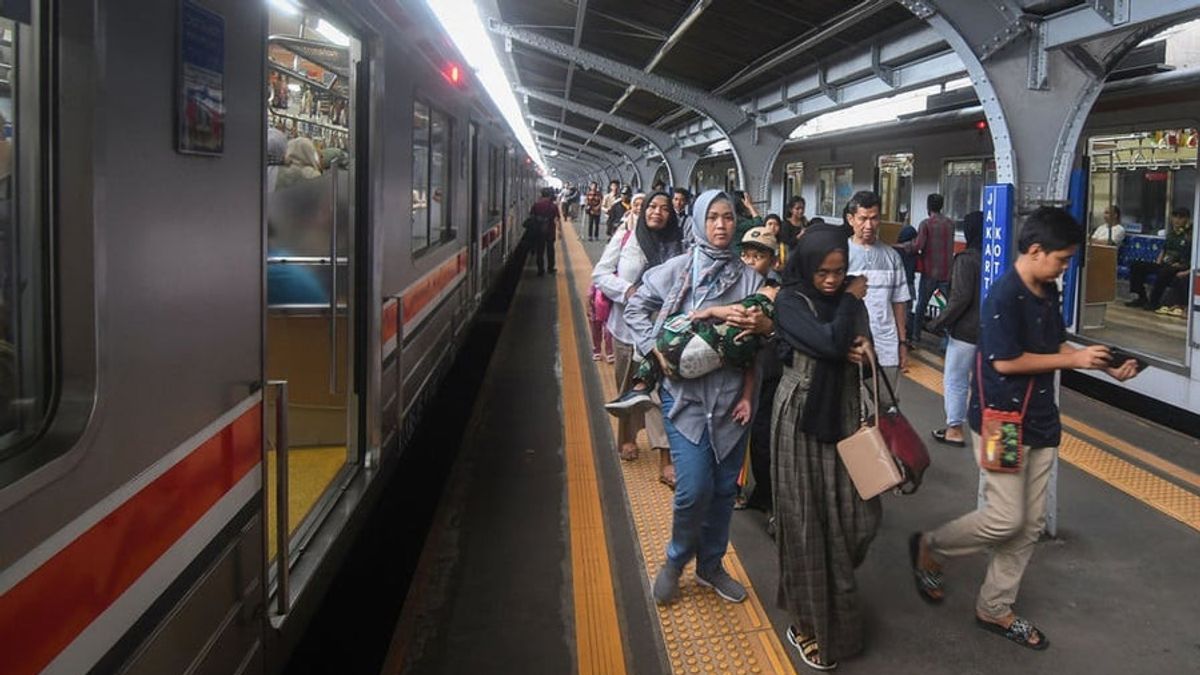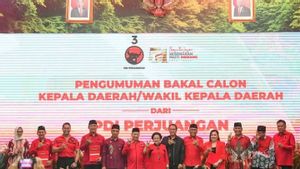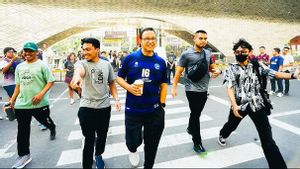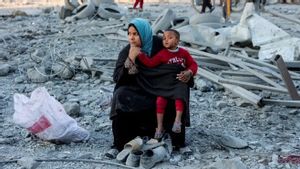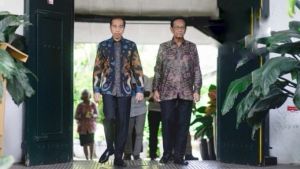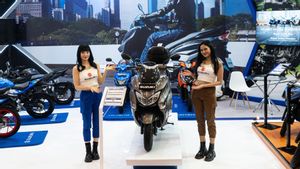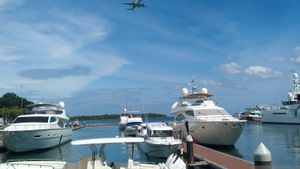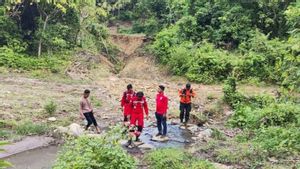JAKARTA Users of the Jabodetabek Commuter Line Electric train (KRL) transportation mode were shocked by the plan to provide subsidies based on the Population Identification Number or NIK. A number of observers who denominat this policy will have an impact on passengers, one of which is social grouping.
Recently, the Ministry of Transportation (Kemenhub) plans to change the scheme for providing subsidies for Jabodetabek KRL tickets to NIK-based. With the implementation of NIK-based KRL tickets, the government wants PSO subsidies to be channeled more on target.
For information, all Jabodetabek KRL tickets have been subsidized by the government in the form of a public service obligation (PSO), so that subsidies are provided evenly to all KRL passengers.
However, this plan is opposed by a number of groups, especially KRL users. The lack of train fleet and a long waiting period on several routes should be of concern to the government, according to KRL users. In addition, the implementation of this policy also adds to the burden of the middle class.
Spokesperson for the Ministry of Transportation, Adita Irawati, said that this plan had actually been sticking out since 2023 but had not been realized until now. According to him, this plan was encouraged by the government by placing it in the Financial Note II Book along with the State Budget Draft for Fiscal Year 2025.
"In 2025, there is indeed a lot of decrease in the APBN allocation. One of them is definitely the consequences, there are also subsidies or experiments that must be adjusted. That's why this is actually in line with the plan for the NIK-based KRL tariff to be right on target because the funds are limited," explained Adita.
Nevertheless, Adita said that this plan would not necessarily be implemented in 2025 because it was still waiting for the results of the government's study.
Although there is no certainty about whether or not this policy will occur, the majority of KRL users have complained about this plan.
Transportation observer Djoko Setijowarno said that the discourse of providing NIK-based subsidies for Jabodetabek Commuter Line KRL tickets actually has a good goal, one of which is for equitable distribution of subsidies in all regions.
However, he said this NIK-based subsidy could not be implemented in the near future. That's because the current condition of the fleet does not allow for the difference in ticket payments between capable and underprivileged users.
"Overall the impact is positive, but don't take effect now. Why are people angry or don't accept it? Because at this time they are enjoying uncomfortable KRL," said Djoko.
To VOI, Djoko said, the Jabodetabek KRL tariff had not been adjusted or increased since 2016.
In a survey conducted on Jabodetabek KRL users by the Faculty of Economics and Business Management Institute, University of Indonesia (LM FEB UI) in 2016, it was stated that 63.78 percent of passengers who had an income of IDR 3 million-IDR 7 million per month.
Meanwhile, the research conducted by Dwi Ardianta, Hengki Purwoto and Agunan Samosir in the Trisakti Transportation & Logistics Management Journal (July 2022) concluded that the provision of PSO KRL Jabodetabek was not on target because about 60 percent of users were capable groups.
With the implementation of NIK-based subsidies, said Djoko, it is an effort to equalize subsidies in other regions. In 2023, he added, the government budgeted PSO for an average of IDR 3.5 trillion. Of these funds, as much as IDR 1.6 trillion or 0.48 percent was given to PSO KRL Jabodetabek.
This figure is very different from the budget for pioneer buses in 36 provinces in the same year, namely Rp. 177 billion or only 11 percent of the Jabodetabek KRL PSO. Djoko assessed that this subsidy seemed very unequal.
"It's not balanced. The interests of 3 T (Front, Disadvantaged and Outermost) public transportation services throughout Indonesia are far behind Jabodetabek residents," said the Academician of the Unika Soegijapranata Civil Engineering Program.
"Indonesia is not just Jabodetabek, many other regions don't get it even though they produce minerals such as Morowali, Halmahera, remain impoverished of the community," said Djoko.
Regarding the provision of subsidies for Jabodetabek KRL tickets, he suggested not to be given every day, but only on weekdays. On holidays such as Saturdays and Sundays and national holidays, the usual tariff can be imposed.
By applying such rates, unused funds can be diverted to other programs that are more in need.
"My (word), Saturday-Sunday, don't have to be subsidized either. How much can we save? On weekends, holidays are not subsidized, yes, it can save a third of it, from IDR 1.6 trillion. Now that means money like that is rushed to other areas that need it," said Djoko.
Meanwhile, Executive Director of the Institute for Transportation Studies (Instran) Deddy Herlambang assessed that the NIK-based KRL tariff policy could lead to social grouping in the community.
He is worried that if this plan is implemented, it will cause a kind of social segregation and a 'class of passengers' that is subsidized and not subsidized. According to Deddy, in terms of business it has the potential to occur in the field. In fact, basically, public transportation is free to be used by any layer of society.
The difference in classes between those who receive subsidies and those that are not, said Deddy, is irrelevant in public transportation.
SEE ALSO:
"Maybe it can also have various impacts, now even at the same rate, there is a turmoil, for example fighting for a seat, later especially if someone feels that they are paying a lot of money, they will certainly feel more entitled to pay because they are expensive, you don't pay," said Deddy.
In fact, in terms of facilities and services, PT KAI as the operator of KRL is also doubtful about being able to provide more to users, both those who pay with subsidies and those who do not.
"Yes, there is nothing wrong with that, in terms of business, he pays, he has the right to be served. For example, one pays Rp. 10,000, and one pays Rp. 1,000. So it is indeed difficult to generalize the service related to the service," he concluded.
The English, Chinese, Japanese, Arabic, and French versions are automatically generated by the AI. So there may still be inaccuracies in translating, please always see Indonesian as our main language. (system supported by DigitalSiber.id)
